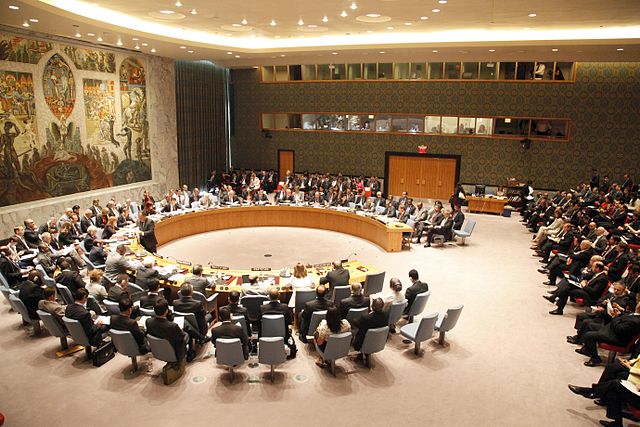With the contribution of experts on the subject and a final call for concerted action, the United Nations Security Council debated for the first time the new realities that the international community is facing with the so-called “artificial intelligence”.
In his intervention, Secretary-General Antonio Guterres remarked that despite its potential to accelerate global development and realise human rights, AI can amplify prejudice, reinforce discrimination and enable new levels of authoritarian surveillance.
At the same time, he stressed the need to “work together for AI that bridges social, digital and economic divides, not drive us further apart”.
Jack Clark, the co-founder of Anthropic [1], noted that while AI can bring enormous benefits, it also poses threats to global peace, security and stability because of its potential for misuse and unpredictability, two essential qualities of AI systems. As example, he mentioned that while an AI system can improve understanding of biology, it can also be used to build biological weapons.
He also strongly cautioned against leaving it exclusively to the private sector because of the risks involved in its use. Without investment in the development of robust and reliable assessment systems, he warned, “the international community runs the risk of handing the future over to a small group of private sector actors”.
Meanwhile, Professor Yi Zeng of the Institute of Automation at the Chinese Academy of Sciences pointed out that today’s AIs are information-processing tools that, while seemingly intelligent, lack real understanding. “That is why they certainly cannot be trusted as responsible agents that can help humans make decisions,” he said.
UAE Deputy Minister of Advanced Science and Technology Omran Sharaf stated that UN member states must establish commonly agreed standards “before it is too late”, requesting mechanisms to prevent AI tools from promoting hatred, misinformation and disinformation that can fuel extremism and exacerbate conflict.
The Ghanaian representative, in turn, stressed that the international community must “limit the excesses of individual national ambitions for combative dominance”. Urging the development of frameworks to regulate AI for non-violent purposes, he cited as a positive example the deployment of such technology by the United Nations Support Mission in Libya (UNSMIL), which facilitated improvements in that country’s Global Peace Index 2022, while warning against the integration of AI into autonomous weapons systems.
The speaker from Ecuador also rejected the militarisation of AI and reiterated the risk posed by lethal autonomous weapons. “The robotisation of conflict is a major challenge to our disarmament efforts and an existential challenge that this Council ignores at its peril,” he warned. Adding that AI can either contribute to or undermine peace efforts, he stressed that “our responsibility is to promote and make the most of technological development as an enabler of peace.”
China’s representative to the Security Council noted that the good or bad of this technology depends on how humanity uses and regulates it, and how the balance between scientific development and security is struck. AI development must ensure safety, risk consciousness, equity and inclusion, he stressed, and called on the international community to put ethics first and ensure that the technology always benefits humanity.
Finally, James Cleverly, Secretary of State for Foreign, Commonwealth and Development Affairs of the United Kingdom, which holds the Council presidency for the month of July, spoke in his national capacity to point out that AI could enhance or disrupt global strategic stability, challenge fundamental assumptions about defence and deterrence, and raise moral questions about accountability for lethal decisions on the battlefield. Finally, alluding to the opportunities this technology offers, he concluded by quoting William Shakespeare, in his play Julius Caesar: “There is a tide in the affairs of men which, taken in floods, leads to fortune”.
With information provided by United Nations Press.
[1] Anthropic PBC is an American artificial intelligence startup founded by former members of Open AI and financially supported by Google.






